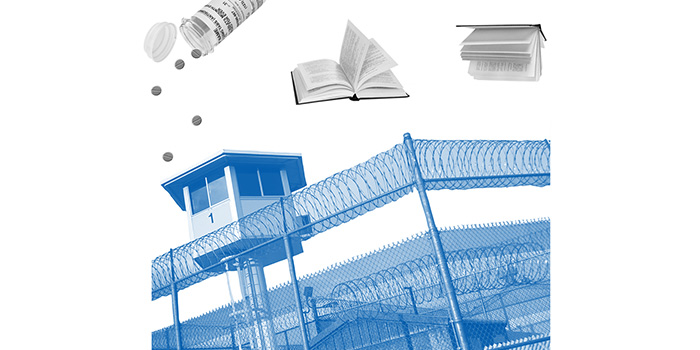
Geter v. Baldwin State Prison, et al.
What's at Stake
The Prison Litigation Reform Act (“PLRA”) requires incarcerated plaintiffs to exhaust the prison’s internal grievance system before they can file suit in federal court. But these procedures may be difficult or impossible for people with mental disabilities to complete. The ACLU is working to ensure that the PLRA’s requirements don’t bar people with mental disabilities from court.
Summary
Under the Prison Litigation Reform Act (“PLRA”), incarcerated plaintiffs must exhaust “available” administrative remedies before filing suit in federal court. 42 U.S.C. § 1997e(a). Complex grievance procedures often present insurmountable obstacles that incarcerated plaintiffs cannot overcome. And many incarcerated people face additional barriers, including high rates of serious mental illness and mental disabilities, that diminish or eviscerate their ability to successfully exhaust.
Plaintiff Jeffery Geter is incarcerated in Baldwin State Prison in Georgia. He is diagnosed with bipolar disorder, Parkinson’s disease, epilepsy, and may have Alzheimer’s disease. He has only an 8th grade and describes difficulties with comprehension. Mr. Geter also underwent a craniotomy, which involves the removal of brain tissue.
Mr. Geter filed a grievance to obtain better medical care following his craniotomy, to no avail. Thereafter, Mr. Geter filed a pro se lawsuit in federal court seeking appropriate medical care. The Georgia Department of Corrections (“GDC”) moved to dismiss his claims, arguing that he had not properly exhausted his administrative remedies under the PLRA. The GDC grievance process requires, among other things, that prisoners include only one issue per grievance. Mr. Geter included at least three issues in his grievance.
The magistrate judge recommended the court deny Defendant’s motion to dismiss, concluding that the “Defendant has failed to show that the administrative grievance process was ‘available’ to Plaintiff, given Plaintiff’s alleged and apparently deficiencies in mental capacity.” The magistrate also found that the April 2016 grievance was written in someone else’s handwriting—most likely a staff member. The magistrate concluded that if “Plaintiff received assistance … and yet was not given assistance in understanding and complying with the ‘single issue’ rule, then arguably, the grievance system was not available to Plaintiff due both to his alleged mental deficiencies and to Plaintiff’s possible reliance on misleading official assistance.”
The district court judge declined to accept the magistrate’s recommendation and granted Defendant’s motion to dismiss.
We represented Mr. Geter in his appeal to the Eleventh Circuit Court of Appeals, arguing that administrative remedies can be “unavailable” under the PLRA due to a plaintiff’s mental disabilities or when staff members interfere with the process. The Eleventh Circuit agreed with us, in part, and remanded the case back to district court — allowing Mr. Geter to pursue his claims for adequate medical care.
Legal Documents
-
09/10/2020
Opinion -
04/03/2019
Reply Brief of Plaintiff-Appellant -
03/06/2019
Brief of Amici Curiae in Support of Defendant-Appellees -
02/27/2019
Brief of Defendant-Appellee -
01/14/2019
Initial Brief of Plaintiff-Appellant
Date Filed: 09/10/2020
Court: Appeals Court (11th Cir.)
Affiliate: Georgia
Download DocumentDate Filed: 04/03/2019
Court: Appeals Court (11th Cir.)
Affiliate: Georgia
Download DocumentDate Filed: 03/06/2019
Court: Appeals Court (11th Cir.)
Affiliate: Georgia
Download DocumentDate Filed: 02/27/2019
Court: Appeals Court (11th Cir.)
Affiliate: Georgia
Download DocumentDate Filed: 01/14/2019
Court: Appeals Court (11th Cir.)
Affiliate: Georgia
Download DocumentPress Releases
The ACLU Seeks Day in Court for Mentally Disabled Man Denied Medical Attention by Baldwin State Prison